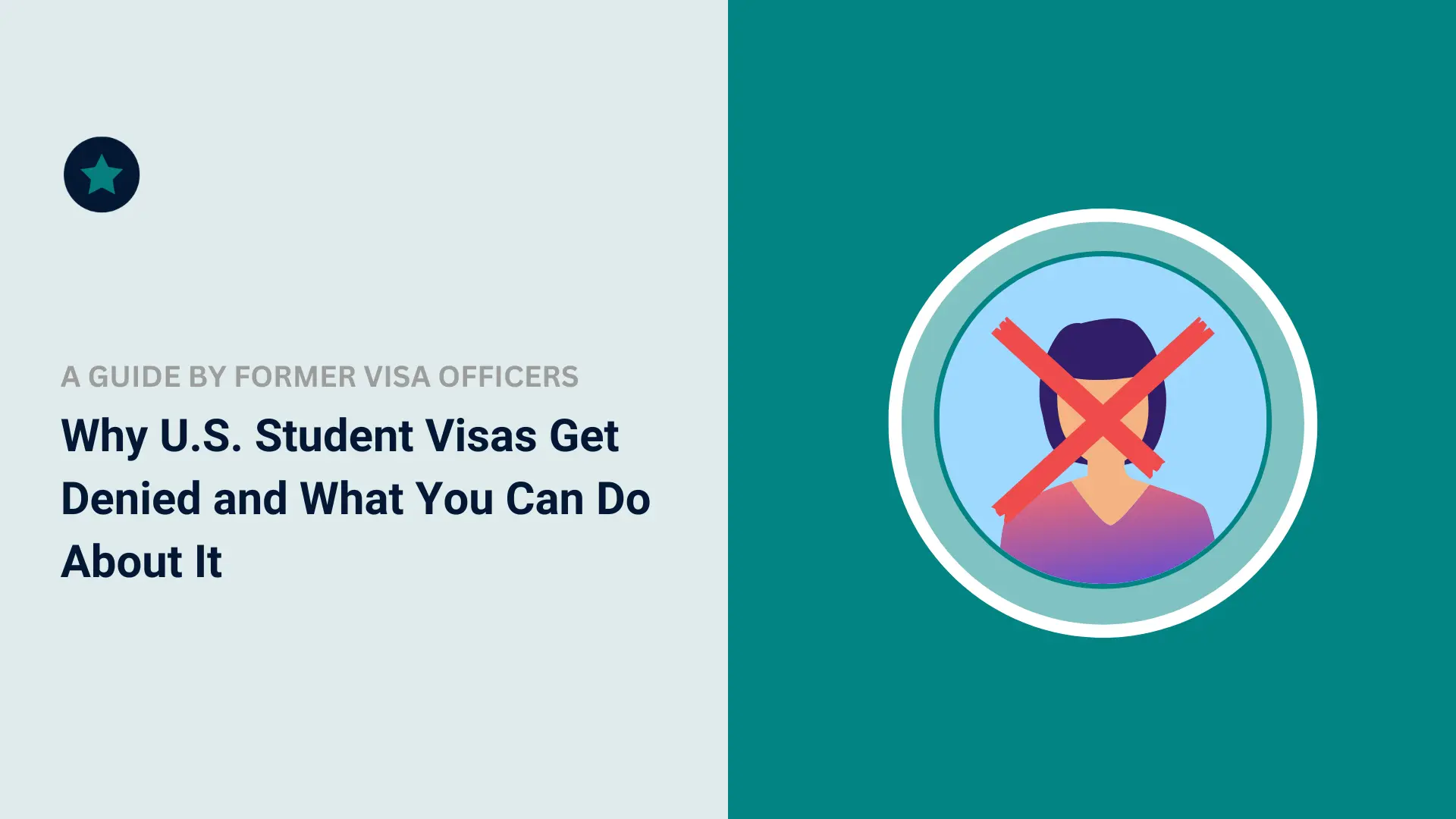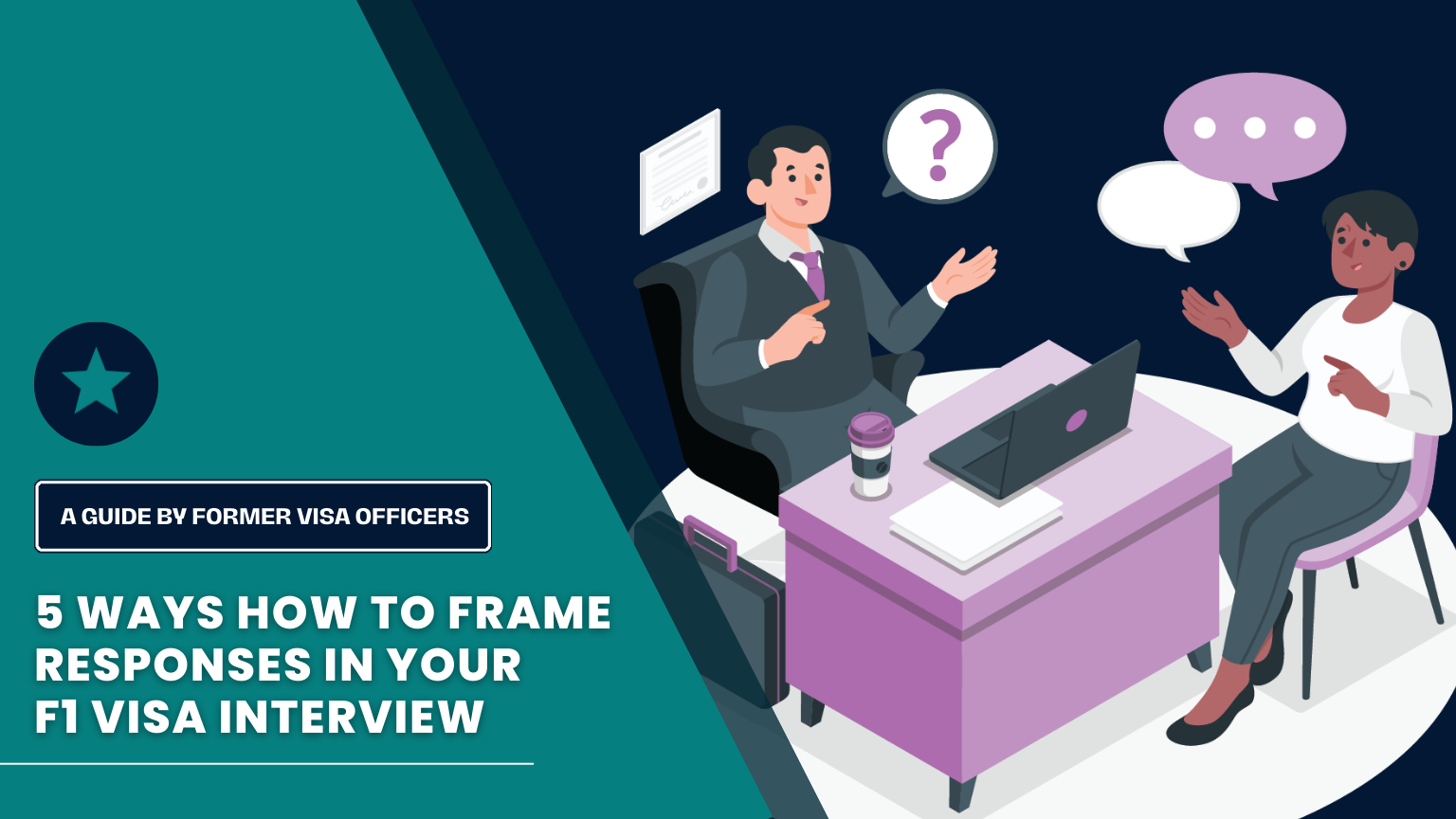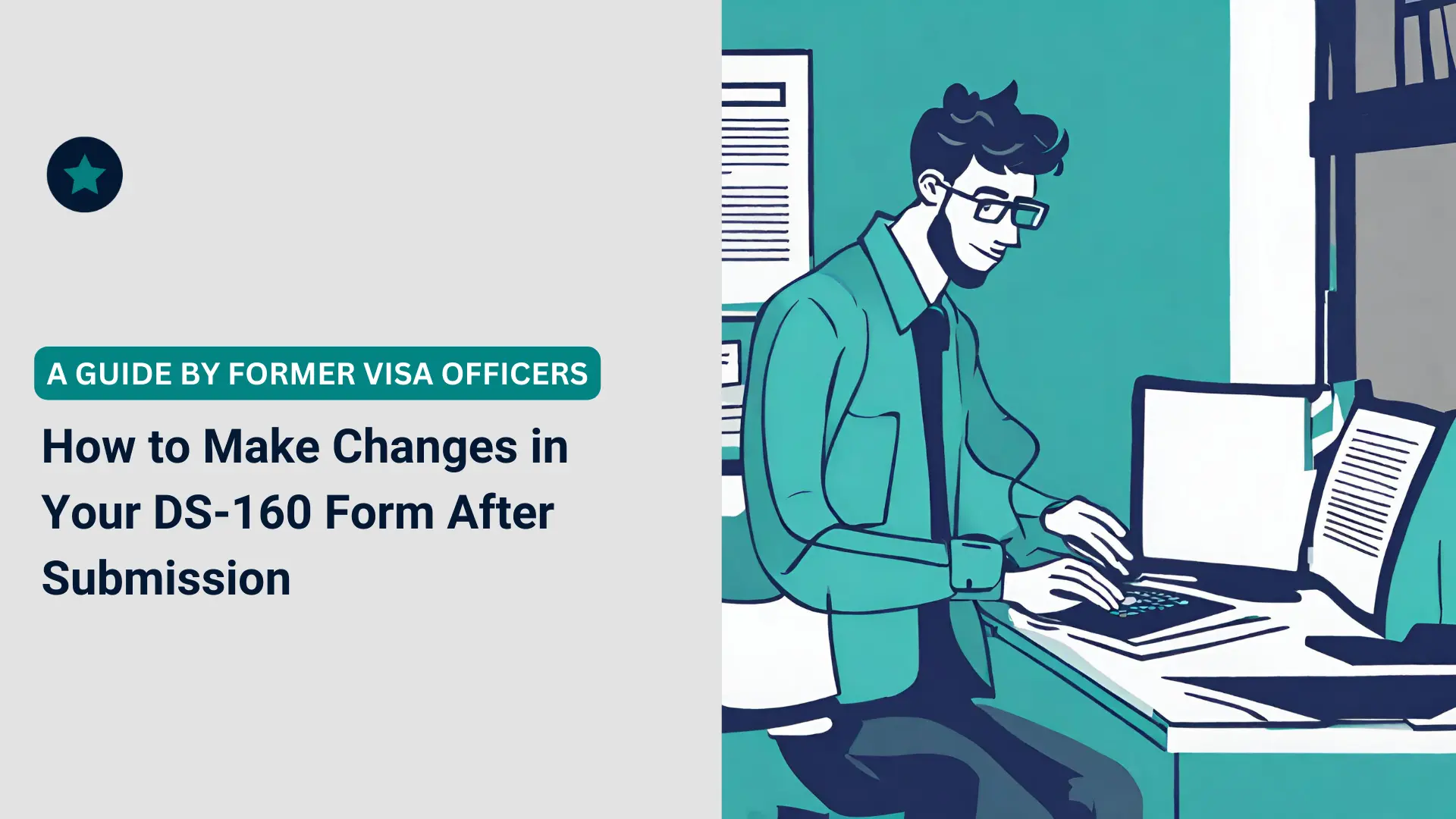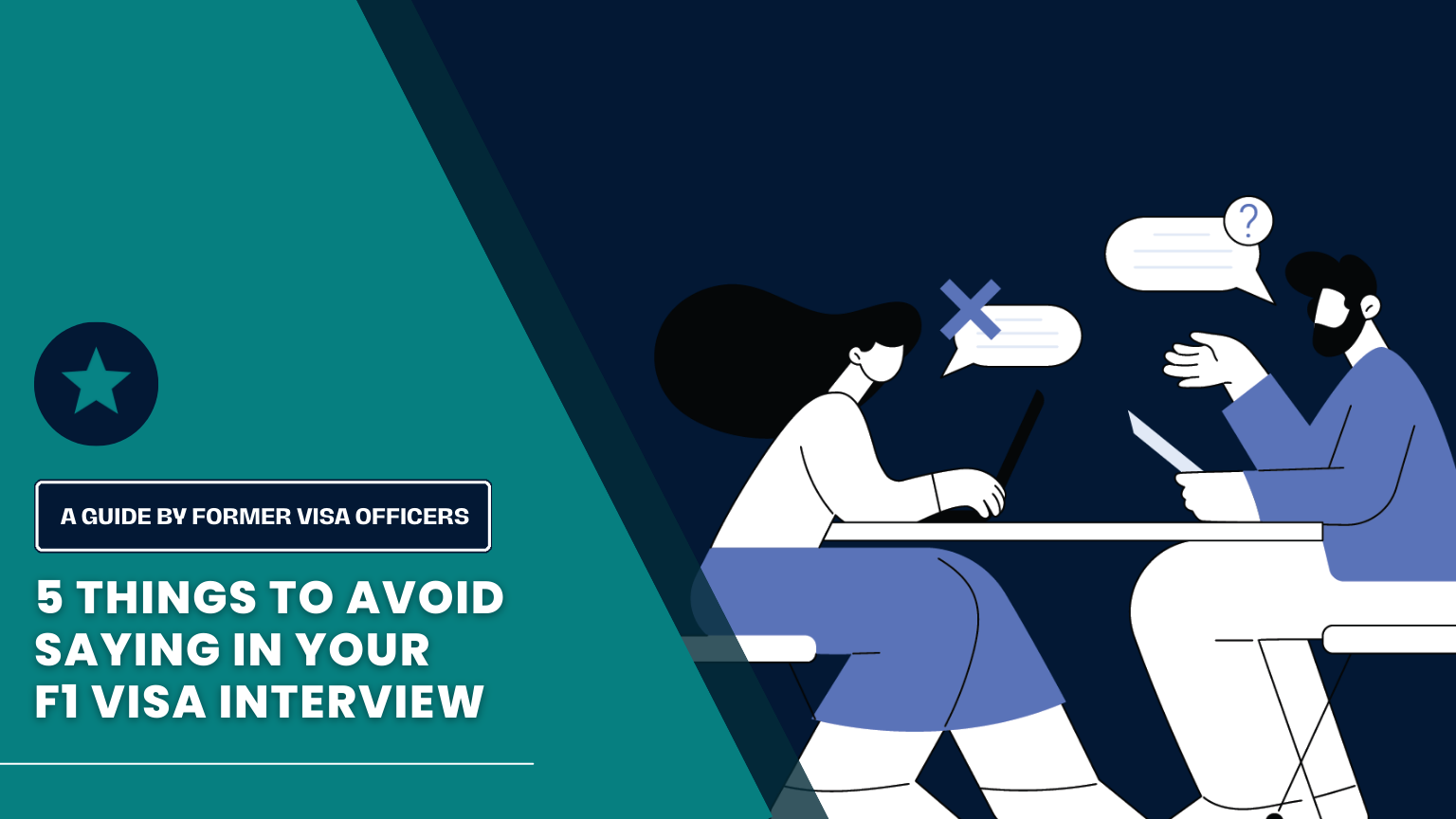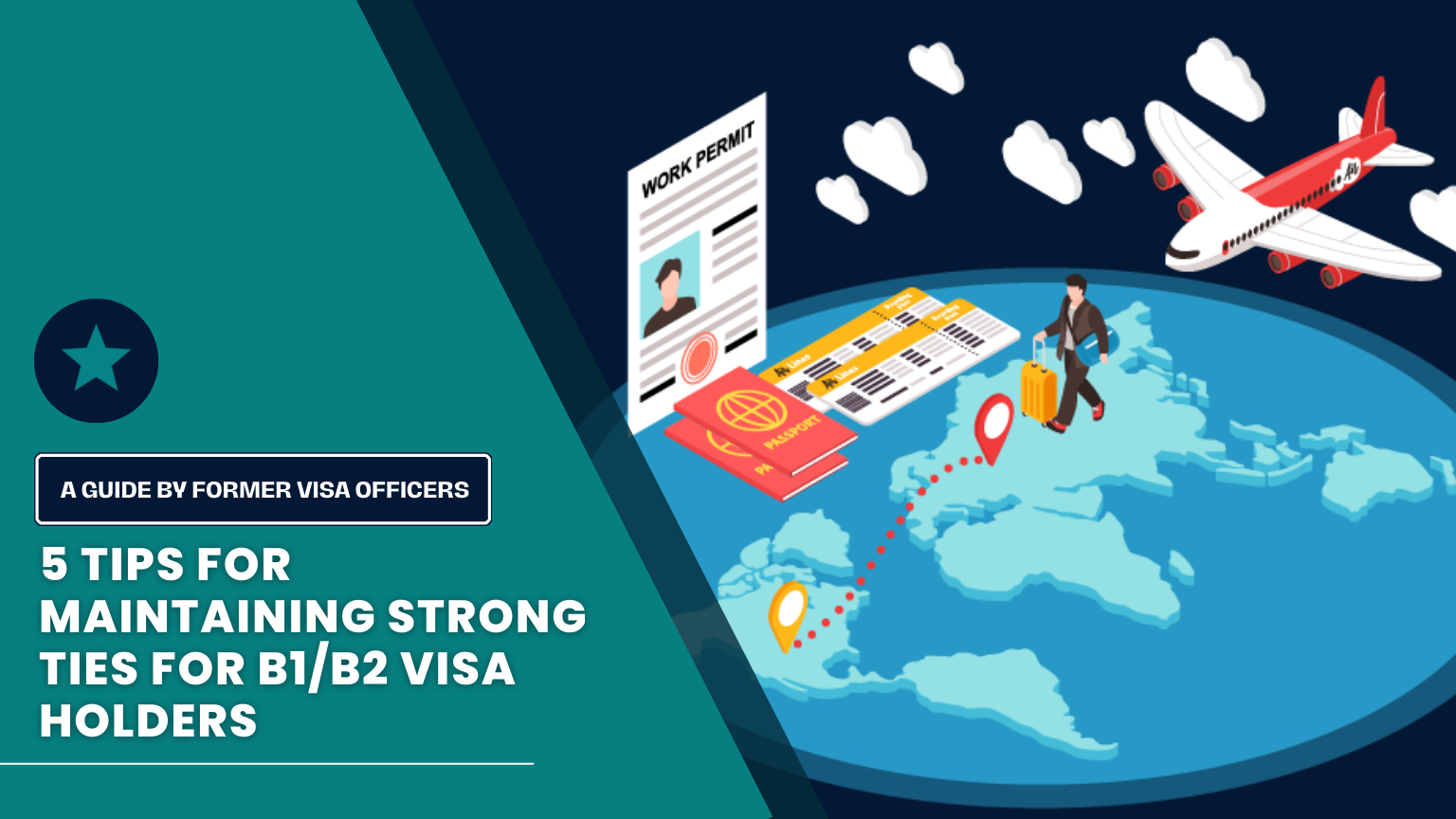If you’re an international student planning to study in the United States, obtaining a student visa is an essential step in the process. However, the visa application process can be complex and confusing, and unfortunately, not all applicants are approved.
In this blog post, we’ll explore the common reasons why U.S. student visas get denied and what you can do to increase your chances of approval. We’ll also share real-life examples of students who were denied visas and discuss how they could have avoided their visa denials.
Having a better understanding of the visa application process and the factors that can lead to a denial can help you prepare a stronger application and increase your chances of success. So, let’s dive in!
Table of Contents
ToggleCommon Reasons for U.S. Student Visa Denials
When it comes to U.S. student visa denials, several common reasons stand out, and it’s essential to be aware of them in order to avoid falling into these pitfalls. Let’s delve into these reasons and understand how to address them effectively:
- Lack of Confidence and Inability to Discuss Finances: Confidence plays a crucial role during the visa interview process. Many students find themselves at a disadvantage when they lack confidence at the visa window or struggle to discuss their finances adequately. It’s important to present a clear and comprehensive picture of your financial situation, including immovable assets, joint family income, and the full scope of your finances. Avoid downplaying your financial capabilities, as this can raise doubts in the officer’s mind.
- Insufficient Financial Resources: Demonstrating strong financial resources is vital for securing a U.S. student visa. If your savings are low and you have a significant loan burden, it’s crucial to address this issue proactively. Present a well-documented financial plan that explains how you intend to manage your finances while studying in the U.S. Showcase a realistic approach and provide evidence of how you plan to meet your educational and living expenses.
- Lack of Knowledge or Articulation Regarding School Selection: A common mistake is not knowing or being unable to articulate why you selected a particular school or program. Take the time to thoroughly research and understand the institution you wish to attend. Highlight specific reasons that align with your academic and career goals. Avoid simply memorizing a rehearsed speech. Instead, engage with the visa officer authentically and provide genuine reasons for choosing the school or program.
- Unpreparedness for the Visa Interview: Being unprepared for the visa interview can lead to confusion and inadequate responses, ultimately jeopardizing your chances of approval. Ensure you are well-versed in the visa application process and have practiced potential interview questions. Pay attention to the officer’s questions, listen carefully, and provide direct and concise answers. Communicate confidently, even if you may feel nervous, and remember that preparation is key to success.
- Language Barriers and Communication Skills: Poor English skills can hinder effective communication during the visa interview. It’s essential to practice and improve your English proficiency before the interview to ensure clear and concise communication. Consider taking language courses or engaging in conversations with native English speakers to enhance your language skills. If necessary, seek assistance from language tutors or professionals to help you prepare for the interview.
It’s important to remember that many times, students with excellent academic backgrounds and genuine intentions get denied due to factors within their control, such as inadequate preparation. Take the necessary steps to prepare thoroughly, seek guidance from experts if needed, and approach the visa interview with confidence and authenticity. By doing so, you can increase your chances of securing a U.S. student visa successfully.
Case Studies: Examples of U.S. Student Visa Denials
Real-life examples of student visa denials can help provide insight into the visa application process and the common reasons for denials. Let’s take a look at a few examples:
Maria’s Story
Maria applied for a U.S. student visa to attend a university in California. However, she lacked confidence at the visa window and struggled to discuss her finances effectively. Maria failed to provide a complete financial picture, downplayed her financial resources, and did not mention her immovable assets or joint family income. Consequently, her visa application was denied.
How Maria could have avoided her visa denial: Maria should have prepared thoroughly for the visa interview, gaining confidence and clarity in discussing her finances. She needed to provide a comprehensive and honest overview of her financial situation, including immovable assets and joint family income.
Ahmed’s Story
Ahmed applied for a U.S. student visa to attend a university in New York. During the visa interview, he struggled to articulate why he had selected that particular school or program. His answers appeared rehearsed, lacking authentic and genuine reasons. Ahmed’s confusion and inability to provide direct answers contributed to the denial of his visa.
How Ahmed could have avoided his visa denial: Ahmed should have thoroughly researched the university and program he applied to, identifying specific reasons that aligned with his academic and career goals. By approaching the visa officer authentically and providing genuine motivations for his school selection, Ahmed could have increased his chances of approval.
Ling’s Story
Ling applied for a U.S. student visa to attend a community college in Florida. Despite having excellent academic credentials and adequate financial resources, Ling was unprepared for the visa interview. She struggled to listen to questions, gave short and unclear answers, and her poor English skills hindered effective communication. As a result, her visa application was denied.
How Ling could have avoided her visa denial: Ling should have focused on improving her English language skills before the interview to enhance her ability to communicate clearly and confidently. Adequate preparation, including practicing potential interview questions and seeking language assistance if needed, would have better equipped Ling to navigate the visa interview successfully.
These case studies highlight the importance of addressing the reasons for U.S. student visa denials. By being well-prepared, confident, and genuine in your communication, you can mitigate these common pitfalls and enhance your chances of obtaining a U.S. student visa. Remember, thorough preparation and understanding of the visa application process are crucial for success.
Tips for Avoiding U.S. Student Visa Denials
Now that we’ve looked at common reasons for U.S. student visa denials and real-life examples, let’s explore some tips for avoiding denials:
- Build Confidence and Communicate Finances Effectively: Work on building your confidence before the visa interview. Practice discussing your finances in a clear and comprehensive manner. Present a realistic financial plan that showcases your ability to cover educational and living expenses.
- Thoroughly Research and Articulate School Selection: Take the time to research and understand the institution and program you wish to attend. Be able to articulate genuine and specific reasons for your school selection. Avoid rehearsed speeches and engage with the visa officer authentically, highlighting how the chosen school aligns with your academic and career goals.
- Prepare Thoroughly for the Visa Interview: Adequate preparation is key to a successful visa interview. Practice potential interview questions, focusing on providing direct and concise answers. Listen carefully to the questions asked and avoid confusion by being well-prepared with your responses. Confidence, clarity, and authenticity in your communication are essential.
- Improve Language Skills: Enhance your English language skills to overcome any language barriers during the visa interview. Take language courses or engage in conversations with native English speakers to strengthen your proficiency. Clear and effective communication will help you express yourself confidently and prevent misunderstandings.
- Seek Expert Guidance: If you’re unsure about the visa application process or have concerns, it’s highly recommended to seek expert guidance. At Udeti Visa, we understand the complexities of the visa interview process. Our consultancy was founded by former U.S. consular officers who possess insider knowledge and firsthand experience. We specialize in providing comprehensive visa interview preparation assistance.
Our team of experts can guide you through the intricacies of the U.S. student visa application, helping you prepare for the visa interview with confidence. We offer personalized coaching sessions, mock interviews, and valuable insights on how to address the specific concerns raised during the interview.
With Udeti Visa by your side, you’ll receive tailored guidance and invaluable tips to navigate the visa application process successfully. Our goal is to empower you with the knowledge and skills necessary to present your best self during the visa interview.
Remember, credible students sometimes face visa denials due to reasons within their control, such as inadequate preparation. By partnering with Udeti Visa, you’ll gain a competitive edge and maximize your chances of a successful U.S. student visa application. Contact us today to benefit from our consultancy services and take a confident step towards fulfilling your educational aspirations in the United States.
Conclusion
Securing a U.S. student visa can be a challenging process, but with a clear understanding of the common rejection reasons and proactive steps to address them, you can significantly increase your chances of success. By building confidence in discussing your finances, thoroughly researching and articulating your school selection, and preparing thoroughly for the visa interview, you can present a compelling case to the visa officer.
Remember, the visa application process is not entirely within your control, but by taking proactive measures and seeking expert assistance, you can minimize the risk of visa denials. Preparation and genuine communication are key to success. Approach the visa interview with confidence, authenticity, and a comprehensive understanding of your financial situation and school selection.
At Udeti Visa, we are committed to empowering you with the knowledge and skills needed to navigate the U.S. student visa application process successfully. Our consultancy services are designed to provide you with personalized guidance and support, increasing your chances of securing a U.S. student visa.
By leveraging these insights and resources, you can overcome the common pitfalls that lead to visa denials and take a significant step forward towards achieving your educational goals in the United States. Contact Udeti Visa today to embark on your journey with confidence and embark on a promising academic future.
(This blog post was written by Yvette Bansal, former consular officer & Kausar Shaikh, Content Strategist.)
DISCLAIMER:
This blog does not endorse or advocate for any illegal activities. All content presented here is intended for educational purposes only. The viewpoints expressed do not constitute legal advice and are solely based on the writer’s opinions and experiences. Please use the information provided responsibly. Any advice given is of a general nature and should be applied to your specific circumstances with caution and consideration.
Yvette Bansal is a former U.S. visa officer (U.S. Diplomat). She has served at Embassy New Delhi and Consulate General Mumbai and has adjudicated over forty thousand visas. She met and married her husband in India and is currently happily settled in Chicago, United States.

